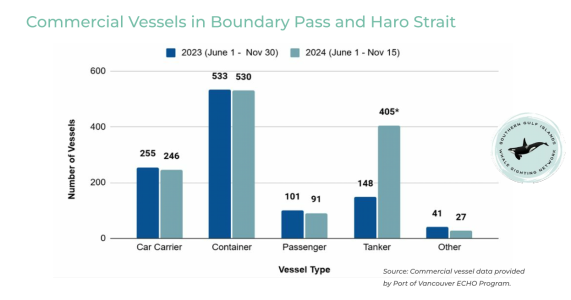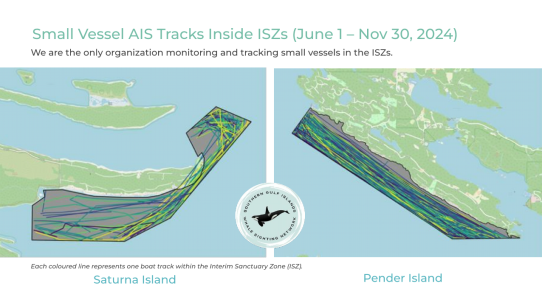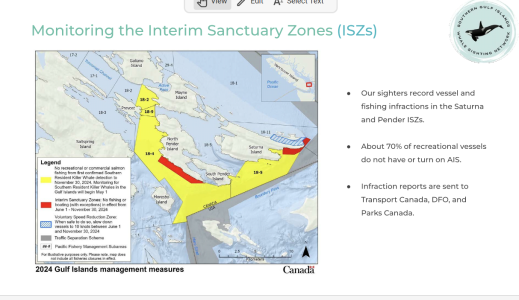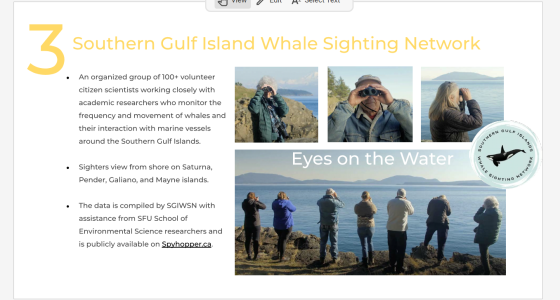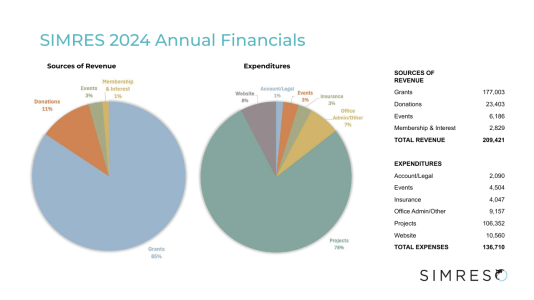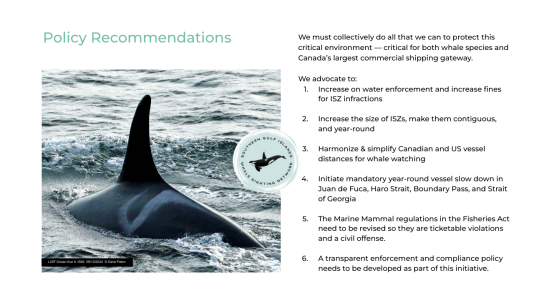I took my time chiming in on this topic because I had hoped to get to the Boat Show and speak to the DFO folks there. Unfortunatley while spending time back east with my brother who is a permanent locked floor hospital resident (Alzhiemers) or on my flight home I contracted the Noro Virus. The effects of getting that virus are simply not fun and after one bout in San Fran I learned about the virtues of PediLite. We now keep two bottles on the boat in case a guest gets SeaSick and keep more at home.
One has to wonder if there is a revenue sharing model where part of the fines collected (or levied) goes to the watchers to support their observation posts and equipment costs. An FOI request(s) might prove helpful.
I had been thinking about the fines for far more egregious offenses i.e. DWI
In BC the maximum fines for a DWI are lower than the $5,000 for crossing into a Whale Zone
The cost of impaired driving
B.C. has the toughest drinking and driving laws in Canada. If you’re caught driving impaired, you could face these penalties:
I asked AI to dig a bit deeper into fines up to $5,000.00
In Canada, a maximum fine of
$5,000 is the standard, default penalty for most offences prosecuted by
summary conviction (the least serious type of offence) under Section 787(1) of the Criminal Code, often accompanied by up to two years less a day in jail.
Many "hybrid" offences—which can be treated as either summary or indictable—have a $5,000 maximum fine if the Crown chooses to proceed summarily.
Examples of criminal offences that often carry a maximum fine of $5,000 (when proceeded with via summary conviction) include:
- Causing a Disturbance (s. 175)
- Trespassing at Night (s. 177)
- Public Nudity (s. 174)
- Theft Under $5,000 (s. 334(b) - when summary)
- Fraud Under $5,000 (s. 380(1)(b) - when summary)
- Possession of Property Obtained by Crime Under $5,000 (s. 355)
- Mischief/Damage to Property Under $5,000 (s. 430)
- Taking an Automobile Without Consent (s. 335)
- Soliciting Near Children or Stopping Traffic for Prostitution (s. 213)
- Unlawful Assembly (s. 66)
- Failure to Comply with a Data Preservation Demand (s. 487.0197)
- Harassing Phone Calls (s. 372)
- Fraudulently Obtaining Transportation (s. 393)
Note on Hybrid Offences: For offenses like assault or minor fraud, if the Crown elects to proceed by indictment rather than summary conviction, the maximum fine is not restricted to $5,000 and the potential jail time is significantly higher.
Disclaimer: Criminal laws can change. The information provided is based on typical sentencing for summary conviction offences as of 2024-2026, where a $5,000 fine is the standard max under s. 787(1) of the Criminal Code.
Please correct me if I am wrong but it appears that we now have a group of self appointed and self-interested volunteers working together to capture data that has a fine levied without trial.
A fine that is levied without the involvment of the Crown, or the Police.
Does this mean that I can run a movie camera and a radar gun on the Upper Levels Highway at night at Westview and issue speeders tickets. I am thinking that is not going to happen.

